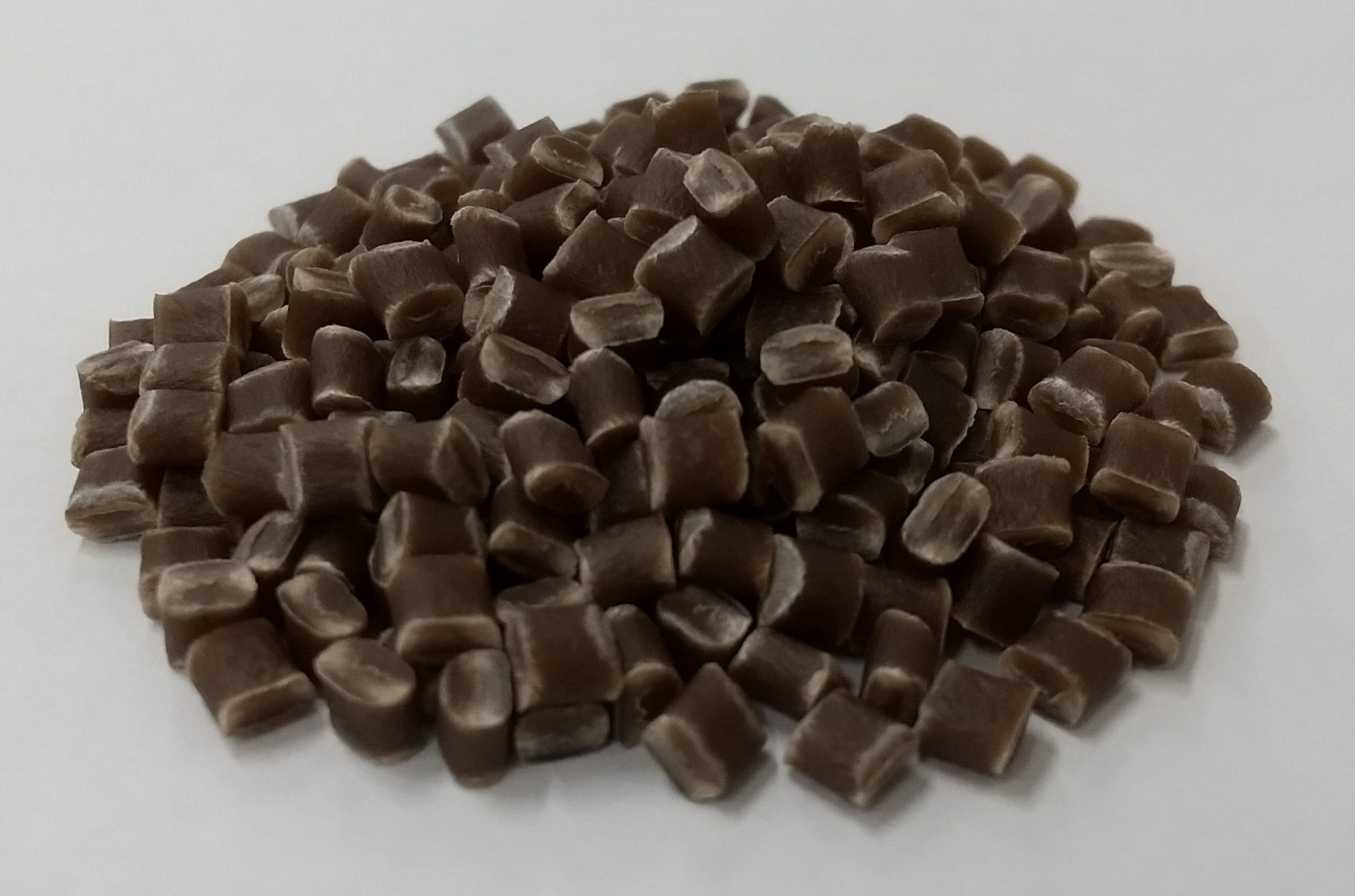Press ReleasesStart of Alliance on the Development of Applications for CNF-Reinforced Resin with Yamaha MotorJoint development of components made from CNF-reinforced polypropylene equipped in the engine of personal watercraft
Nippon Paper Industries Co., Ltd.
Nippon Paper Industries Co., Ltd. (Headquarters: Chiyoda-ku, Tokyo; President: Toru Nozawa; "the Company") will commence an alliance with Yamaha Motor Co., Ltd. on the development of applications for Cellenpia Plas®, CNF-reinforced resin. Specifically, Yamaha Motor and the Company will engage in joint development with the aim of equipping parts that use Cellenpia Plas® polypropylene in the engine of 2024 models of personal watercraft produced by Yamaha Motor. If successful, it will be the first example of Cellenpia Plas® being employed on a commercial basis. (Note 1)
Cellenpia Plas® polypropylene pellets
CNF-reinforced resin is a new high-strength material produced by uniformly dispersing CNF, a biomass material that utilizes woody resources, into resin such as polypropylene or nylon 6. In addition to reducing the weight of components that currently use resin, since CNF-reinforced resin features excellent material recyclability, it leads to reduced plastic usage and lower emissions of greenhouse gases, primarily CO2. CNF-reinforced resin is therefore expected to be used in the fields such as automotive, construction materials, and home appliances.
The Company is currently taking part in a project subsidized by the New Energy and Industrial Technology Development Organization (NEDO) (Note 2), under which it is working on the development of CNF-reinforced resin. An expanded demonstration facility primarily focused on the kneading process that was constructed at the Fuji Mill using this subsidy in September 2021 can manufacture CNF-reinforced resin master batches (Note 3) of more than 50 tons annually.
In addition, the company has already obtained ISO 9001 certification regarding the design, development and manufacturing of CNF-reinforced resin, and is implementing thorough quality management of master batches. In the future, the Company aims to establish manufacturing technologies for stable mass production, improve quality and further reduce costs, and will accelerate the development of applications for CNF-reinforced resin across a wide range of industries including mobility components.
The Company also produces TEMPO-oxidized CNF (Note 4) for general industrial applications at the Ishinomaki Mill and carboxylmethylated CNF (CM-CNF; Note 5) for food and cosmetics applications at the Gotsu Mill, with both materials produced and marketed nationwide a commercial basis. In addition to these activities, by quickly establishing mass production technologies for CNF-reinforced resin and putting a full-scale supply infrastructure in place, the Company will accelerate the creation of a market for new materials and CNF in order to help build a low-plastic society and combat global warming as a comprehensive biomass company that is shaping the future with trees.
Note 1: Estimated as of November 16, 2022. Excluding sample work.
Note 2: Joint participation with UBE Corporation in "Cellulose Nanofiber-related Technologies Development to Contribute to a Carbon Cycle Society / Development of innovative technologies for CNF manufacturing processes / Development of Low-Cost Manufacturing Processes for CNF-Reinforced Resin (PA6, PP)" https://www.nedo.go.jp/news/press/AA5_101344.html
Note 3: Plastic with high CNF content (30-50%). Molded after being diluted to 5-10% content.
Note 4: CNF produced by oxidizing and lightly defibering cellulose (raw pulp) with a TEMPO catalyst. CNF with extremely thin fiber widths of approximately 3 nm
Note 5 CNF produced through the carboxymethylation (CM) and light defibering of cellulose (raw pulp). CNF with fiber widths between several nm and several dozen nm https://www.nipponpapergroup.com/products/cnf/
End